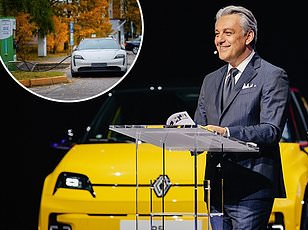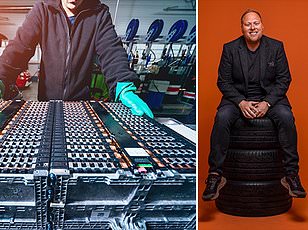Britain will have a shortfall of 3,000 qualified electric car mechanics by 2031
- Accelerating ban on sales of new petrol cars to 2030 could increase skills gap
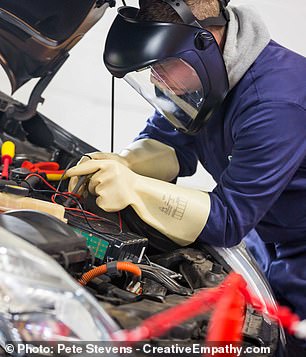
Will we have enough trained mechanics to work on EVs by the end of the decade? The IMI says not, based on the trajectory of qualifications
The Labour Government's plan to reintroduced the 2030 ban on sales of new petrol and diesel cars and force Britain's drivers to go electric faces a major hurdle, according to a report this week.
A major skills gap is being predicted for a workforce of mechanics trained to service and maintain the nation's EVs - with some parts of the country already undersupplied.
The latest update from the professional association representing motor industry workers says we are on course to have a shortfall of 3,000 EV mechanics by the start of the next decade, extending to 16,000 by 2035.
And in London and the South East of England, where EV ownership is highest, there is already a limited workforce of technicians who are qualified to operate on battery-powered cars.
The Institute of the Motor Industry's (IMI) latest EV TechSafe certification data shows that 58,800 technicians are now qualified to work on electric vehicles.
This is the nationally-recognised qualification required to provide aftercare services, such as repairs and servicing, for electric cars.
The near-60,000 EV-certified motor trade professionals represents less than a quarter (24 per cent) of the UK's automotive workforce.
Today, they are responsible for the maintenance and servicing of the 1.1 million battery cars already on Britain's roads.
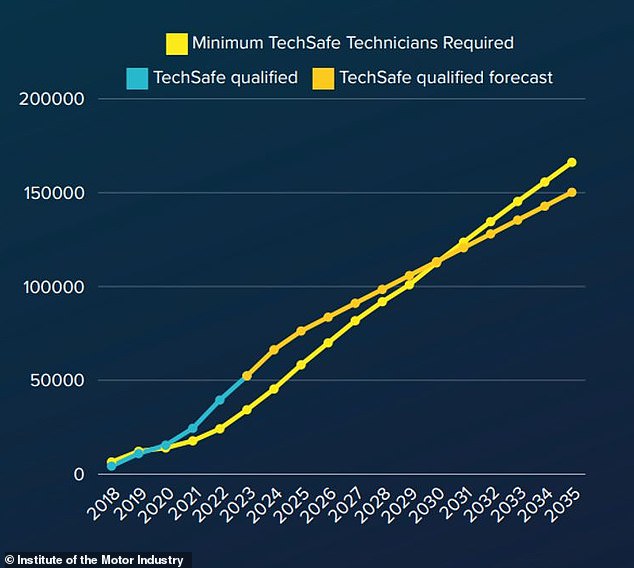
Based on current forecasts for the rise in number of electric cars on the road, the IMI says Britain needs 124k trained mechanics by 2031 - but it is on course to have just 121k

This skills gap could widen if Prime Minister Keir Starmer accelerates the ban on sales of new petrol cars to 2030
However, with Keir Starmer widely expected to reintroduce the 2030 ban on sales of new petrol and diesel cars, the motor industry body is becoming increasingly concerned that garages will be understaffed to cope with an acceleration of electric vehicle numbers.
Based on current forecasts for the rise in electric cars on the road in the build up to a 2035 petrol and diesel ban, the IMI calculates there will need to be 124,000 technicians available for aftercare services by 2031.
Tracking the existing trajectory of mechanics earning qualifications, it says there will be just 121,000 technician certified to work on them by the same date.
By 2035, the IMI believes there will need to be 166,000 EV-readied mechanics.
Yet, the rate of qualifications suggests there will only be around 150,000.
If the ban is fast-tracked to 2030 by the Prime Minister, the deficit of mechanics to EVs could widen dramatically in the first half of the next decade.
'There has been encouraging growth in the number of technicians gaining EV certification so far in 2024,' explained Kevin Finn, executive chair at the IMI.
'However, with the expected reinstatement of the 2030 ICE ban deadline by the new government, the skills gap remains.
'Automotive businesses urgently need to prioritise training more technicians so that the expected rising number of EV owners can find a local technician qualified to work safely on their vehicle.'
London and the South East might already have a lack of EV mechanics
The latest data from the IMI data illustrates the current postcode lottery for EV skills - and suggests some areas might already have a shortfall.
The two regions highlighted as potentially having an unbalanced availability of mechanics to electric cars are London and the South East - the parts of the country with the most EVs on the road.

London and the South East have the highest volumes of 'plug-in electric cars' but not the highest proportion of qualified EV mechanics
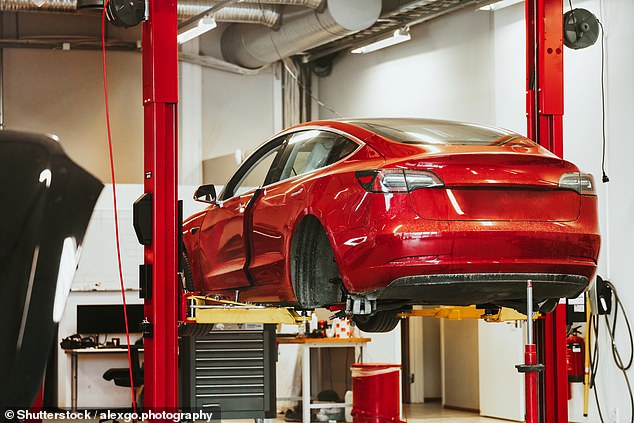
The IMI is warning automotive businesses that they urgently need to prioritise training so that the expected rising number of EV owners can 'find a local technician qualified to work safely on their vehicle'
According to Society of Motor Manufacturers and Traders figures published in April, the two areas boast almost 530,000 plug-in electric vehicles (both full EVs and plug-in hybrids), which make up some 5.9 per cent of all cars on the roads there.
However, London and the South East do not boast the largest proportion of EV certified technicians.
Just 6.1 per cent and 6.4 per cent of technicians respectively are EV-trained, the IMI says.
Instead, the East of England is the region with the highest proportion of EV qualified mechanics (9.5 per cent), while Northern Ireland has the lowest rate at just 3.7 per cent.






